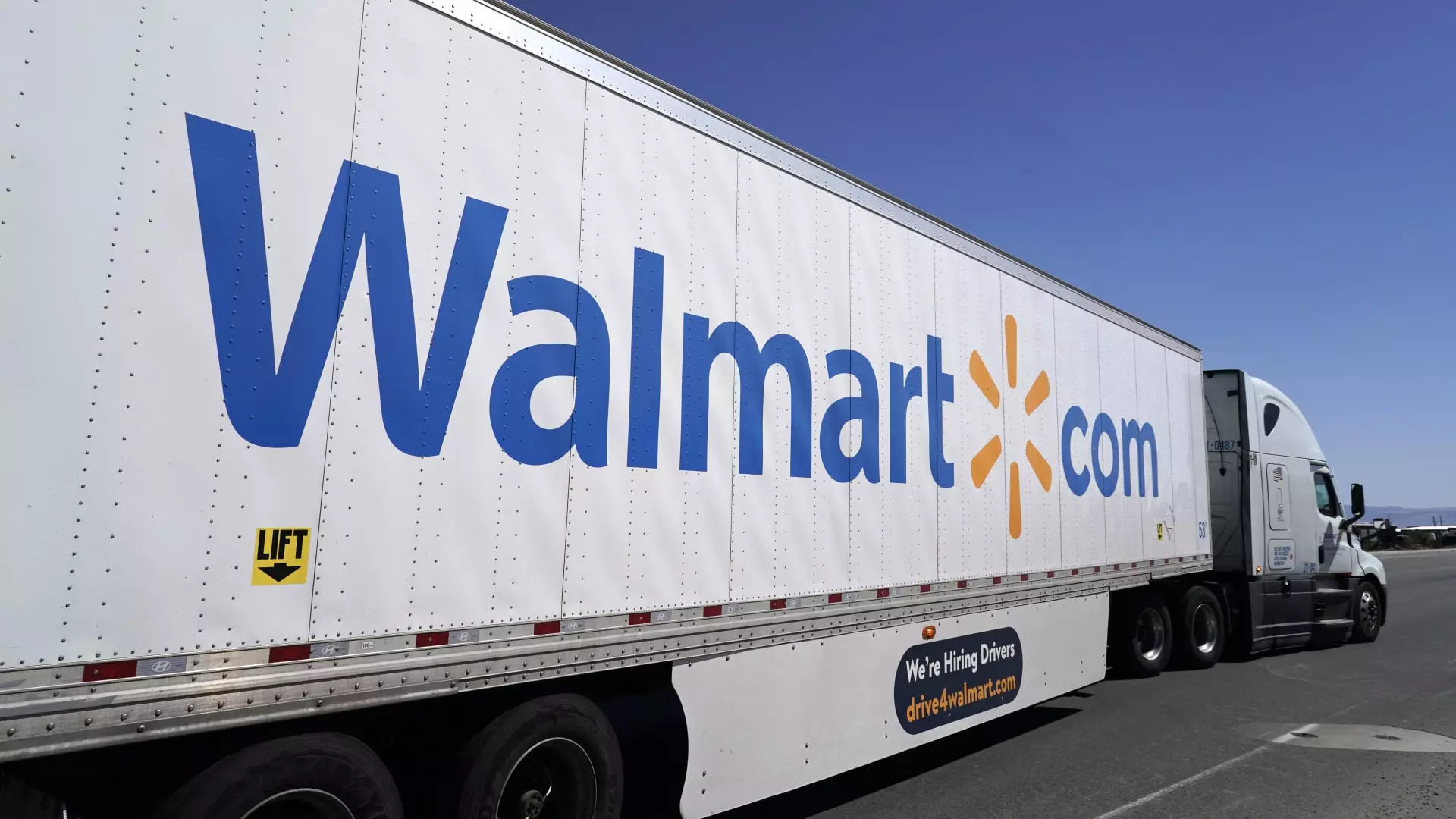The Consumer Financial Protection Bureau (CFPB) has recently brought to light troubling allegations against retail giant Walmart and the work-scheduling app Branch Messenger. The class action-type lawsuit accuses these companies of exploiting delivery drivers by compelling them to use substandard deposit accounts, seemingly as a means to control payments and accumulate fees. This unprecedented legal action raises important questions about the ethics of gig economy platforms and the protections available to workers in an era where flexible jobs often come with hidden traps.
Overview of the Allegations
At the core of the lawsuit is the assertion that Walmart and Branch Messenger collaborated to coerce delivery drivers—specifically those affiliated with the Spark Driver Program—into opening Branch accounts. According to CFPB Director Rohit Chopra, these drivers, numbering over one million, were reportedly misled about their payment options and warned that they would lose their jobs if they refused to comply. Additionally, the complaints detail a troubling trend of costly fees and delayed access to earnings, resulting in over $10 million being drained from drivers’ accounts in what has been termed “junk fees.” Such practices pose a significant threat to the financial well-being of the gig workforce.
The CFPB’s claims further allege that these accounts were opened without proper consent, placing undue financial burdens on drivers. This raises fundamental issues of consumer rights and proper financial management, as workers should not be compelled to undertake arrangements that hinder their ability to earn a fair wage.
Reactions from Walmart and Branch Messenger
In response to the CFPB’s allegations, Walmart has vehemently denied any wrongdoing, depicting the agency‘s lawsuit as “rushed” and filled with inaccuracies. The company insists that a fair review process was not afforded during the investigation. Similarly, Branch Messenger responded with strong opposition to the lawsuit, arguing that the CFPB misrepresented facts and omitted critical information to highlight what they deem an overreach by the Bureau.
These statements underscore a larger trend where corporations, when faced with scrutiny over their practices, often shift responsibility and frame themselves as victims of regulatory misinterpretation. This tense exchange raises questions about transparency and accountability in corporate practices, especially within industries that are increasingly reliant on contractual gig workers.
This lawsuit arrives at a critical juncture in the gig economy, which has seen explosive growth in recent years due to technological advancements enabling flexible working arrangements. However, the rapid expansion of this workforce model has raised concerns regarding worker protections and their rights. The allegations against Walmart and Branch Messenger echo broader issues prevalent within gig economy platforms—such as wage theft, lack of benefits, and insufficient safeguards against exploitation.
The CFPB’s actions reflect a growing acknowledgment that existing regulatory frameworks may not adequately protect workers’ rights in freelance and gig settings. As these types of employment continue to grow, the responsibility falls on regulators to develop mechanisms that effectively safeguard against potential abuses, ensuring that workers are not relegated to environments where their financial security can be compromised.
The outcome of the lawsuit could have far-reaching implications for both Walmart and Branch Messenger, as well as the broader gig economy. If the CFPB’s accusations are validated, it could establish a precedent for similar challenges against companies that utilize exploitative practices against workers. Furthermore, this case brings to the forefront the importance of scrutinizing policies regarding payment methods, disclosure requirements, and overall treatment of gig workers.
Additionally, the case could serve as a wake-up call for regulators, urging them to enhance protections surrounding gig employment and to demand accountability from corporations that may exploit their workforce for profit. The implications extend beyond legal realms; they touch on ethical considerations and the social responsibilities of businesses in today’s economic landscape.
The legal battle between the CFPB and Walmart/Brach Messenger opens a critical dialogue about the treatment of gig economy workers. As corporations face increased scrutiny over their labor practices, the outcomes of such lawsuits may pave the way for more robust protections and a reconsideration of how gig work is structured and compensated. The evolving dynamics between workers and corporations in this sector will remain pivotal as the nation seeks to balance economic growth with ethical labor practices. As the case unfolds, stakeholders across the board must remain vigilant—a fair and just work environment is not only necessary for the well-being of workers but is also crucial for the sustainable growth of the gig economy.

